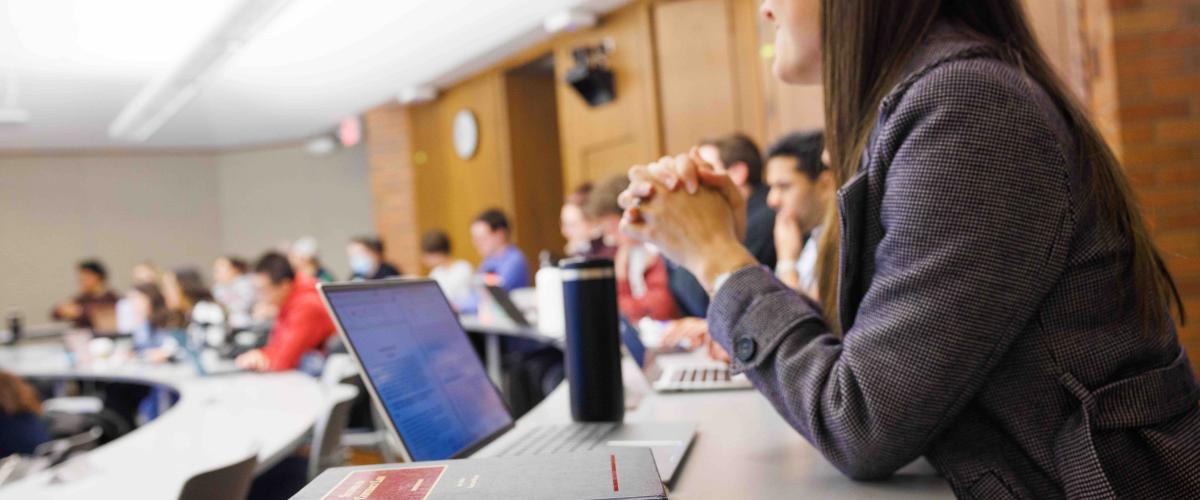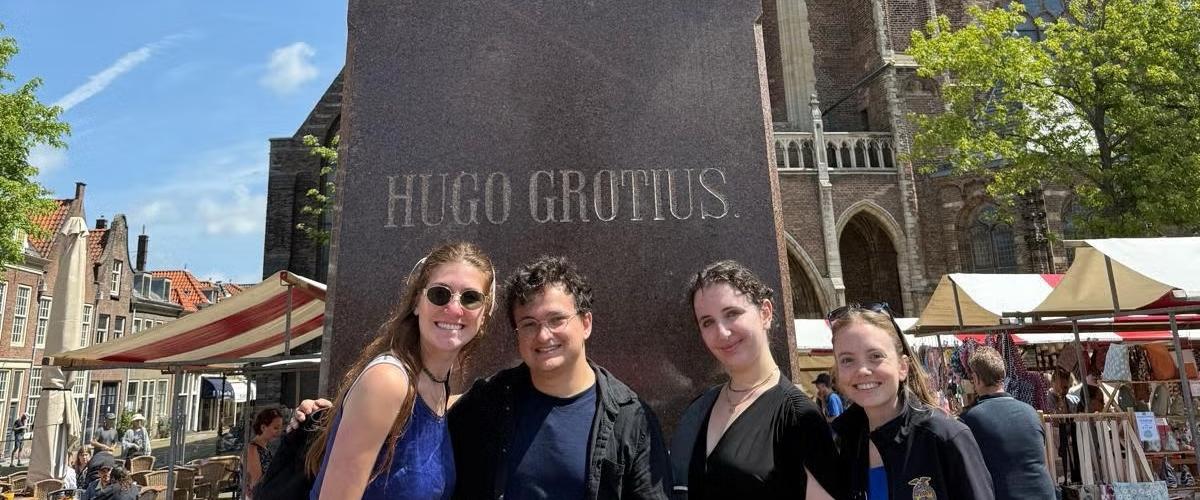Before Russia’s invasion of Ukraine, the School of Law had entered into a Memorandum of Understanding with Taras Shevchenko National University in Kyiv (Shevchenko) and helped establish the School’s American Common Law Center. Since 2013, the Common Law Center has provided academic services at Shevchenko, including professional workshops.
This past spring, professor Michael Scharf and adjunct professor Alek El Kamhawy reengaged Shevchenko by designing and co-teaching a hybrid course on international criminal law. While Scharf and El Kamhawy taught over Zoom, they were assisted by adjunct professor Peter Steciuk, a former U.S. Department of Justice official who is currently living in Kyiv. In addition, several federal prosecutors and government officials provided guest lectures over zoom, while members of the United States diplomatic and legal assistance missions in Ukraine taught classes in person.
In an innovative format, the spring course explored the pathbreaking case of Nadia Murad v. Lafarge. The case was filed in federal district court under the civil and criminal provisions of the Anti-Terrorism Act by renowned human rights attorney Amal Clooney on behalf of 400 Yazidi-Americans. The plaintiffs allege that French conglomerate Lafarge SA conspired to provide material and funds to support ISIS terrorist campaigns against the Yazidi ethnic minority in Iraq and Syria. The case is relevant to Ukraine’s future efforts to obtain compensation related to Russia’s invasion. Although Russia is yet to be declared a state sponsor of terrorism by the United States, the case provides a potential road map on how to make private commercial entities associated with the Russian war effort liable to Ukraine in U.S. court.
This fall semester, El Kamhawy, Steciuk and a cadre of experts are teaching Introduction to Criminal Law to nineteen Shevchenko law students. Steciuk meets with the students in a reinforced classroom in beleaguered Kyiv. The Shevchenko students hope to be involved in future war crimes trials involving perpetrators and collaborators of Russia’s invasion of Ukraine. Both the spring and fall courses were offered by Case Western Reserve University School of Law at no cost to the students.




